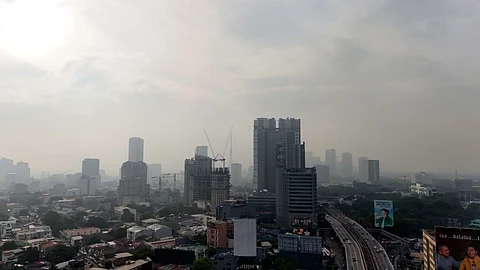
- NEWS
- the EDIT
- COMMENTARY
- BUSINESS
- LIFE
- SHOW
- ACTION
- GLOBAL GOALS
- SNAPS
- DYARYO TIRADA
- MORE

While the 2025 national budget signals a strong push toward economic infrastructure, allocations for health and housing fall short of addressing pressing social needs — raising concerns about the government’s priorities.
Health spending saw a sharp decline in the 2025 General Appropriations Act (GAA), falling from P313.7 billion in 2024 to P255.6 billion in 2025, a staggering P58.1 billion cut.
Economists consider this drop alarming amid ongoing pandemic recovery efforts, overcrowded hospitals, and the chronic under-resourcing of rural health units.
This drastic reduction also threatens the full rollout of the Universal Health Care Law, which promises accessible, affordable, and quality healthcare for all Filipinos. Without sufficient investment, millions — especially in underserved communities — remain at risk of being left behind.
A recent controversy involved the Philippine Health Insurance Corp. (PhilHealth), which faced a significant setback in the 2025 national budget when the bicameral conference committee allocated zero government subsidy.
Lawmakers justified the decision by pointing to PhilHealth’s substantial reserve funds, estimated at around P600 billion, arguing that the agency had not fully utilized its previous allocations, with only 63 percent of its 2024 budget spent by 31 October.
Senate Finance Committee Chairperson Grace Poe emphasized that these reserves should be used before additional taxpayer funds are provided, while critics questioned the constitutionality of the defunding, citing violations of the Universal Health Care (UHC) Act and the Sin Tax Law, which mandate government support for PhilHealth’s operations.
The decision has raised concerns about the agency’s ability to sustain services for millions of Filipinos, particularly indirect contributors like the poor, elderly, and disabled, who rely on subsidized premiums.
The defunding of PhilHealth has been criticized as a potential threat to the country’s healthcare system, with advocates arguing it undermines the principles of social health insurance.
The UHC Act designates PhilHealth as the primary vehicle for providing affordable healthcare, and the Sin Tax Law allocates 80 percent of incremental revenue from tobacco and sugar-sweetened beverages to support its programs.
However, the 2025 budget’s zero subsidy allocation, coupled with the transfer of P89.9 billion in “excess” PhilHealth funds to the National Treasury, has led to accusations of prioritizing political patronage over public health.
Housing and Community Amenities, meanwhile, remain the least funded sector in the national budget. Still, it sees a modest rise from P8.8 billion in 2024 to P10.7 billion in 2025, a P1.9 billion increase. Despite this, the amount remains a drop in the bucket compared to the administration’s lofty pledge of building one million homes annually under the “Pambansang Pabahay para sa Pilipino” (4PH) program.
Engineer to the rescue
Recently, President Ferdinand Marcos Jr. appointed engineer Jose Ramon Aliling as Secretary of the Department of Human Settlements and Urban Development, entrusting him with delivering the 4PH promise in the administration’s remaining years. The goal: to reduce a housing backlog of around six million by building affordable, sustainable, and disaster-resilient homes.
However, critical gaps remain. Implementation delays, funding constraints, land availability, and the logistical challenges of mass-producing climate-resilient housing continue to slow progress. Integration issues with recipient communities also complicate the roll-out.
These budget trends expose a growing imbalance in national priorities. While Economic Affairs continues to command the largest allocation, rising from P836.5 billion in 2024 to P958.4 billion in 2025, basic social services, such as health and housing, remain underfunded.
This P121.9 billion increase reflects the government’s infrastructure-heavy approach, but raises serious questions about whether economic gains are being prioritized at the expense of essential human needs.
As the government ramps up spending on roads, bridges, and big-ticket infrastructure, the underinvestment in social infrastructure sends a troubling message: economic gains are being pursued at the expense of human development.
